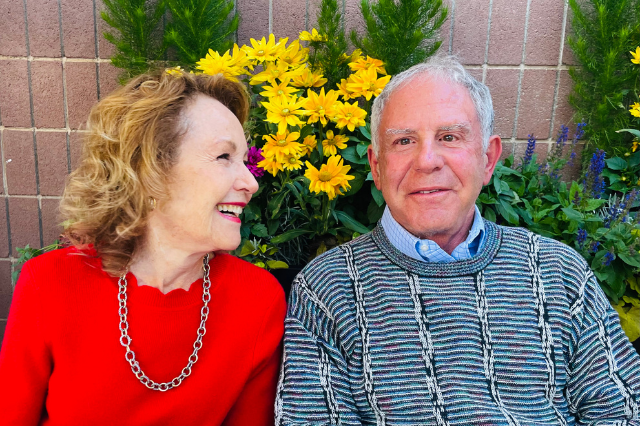(Why didn’t I learn this at home or at school?)
Decades ago my nutritionist asked me to chew each mouthful of a customized healing diet 50 times before swallowing. The dietary program was designed to reverse an early symptom of chronic illness. I thought, “this is ridiculous!” However when he explained why, I understood and learned to become mindful of how I ate.
He taught me that undigested food greatly lessens the amount of nutrients essential and available for health and recovery. Unless we chew each mouthful until we no longer feel its texture, our food may remain undigested as it travels through our digestive tract. This can cause distressing physical symptoms like gas, bloating, stomach pain or a backup of digestive fluids after eating as well as slow down the body’s ability to heal.
If you have experienced such physical symptoms, you may have taken antacids or other drugs to ease your discomfort. You may have or now believe something’s wrong with your body. Yet perhaps it’s your eating or chewing style that’s the problem!
When I learned that HOW I eat is just as important as WHAT I eat, it was a life-changer. I saw that how I ate could make either a negative or positive difference in how I feel and in my overall health.
The first step of digestion is in the mouth, where enzymes from saliva begin to break down the food (especially grains and beans) and prepare it for the stomach. So the longer you chew, the better able your stomach enzymes can continue breaking down the food to use for energy. It’s the large pieces of undigested food that can cause symptoms. Generally it’s recommended to chew each bite 32 times before swallowing. Some foods require more or less chews, depending upon the texture.
Of course, if you have symptoms, it’s important to consult with a medical professional. I spoke with Dr. Michelle Pearlman, a gastroenterologist and weight loss specialist at Prime Institute, LLC in Miami, FL about the root cause of some of her patients’ physical digestive issues. She said that in her experience many of these patients are able to reverse or greatly reduce their physical symptoms by learning to chew their foods completely before swallowing. No more symptoms, no more medication.
Are you ready to power up your nutrition and health outcomes?
Here are 5 steps you can use to take advantage of mindful eating:
- Put away books, digital devices, TV’s and other distractions before eating.
- Chew slowly.
- While chewing each mouthful, inhale and exhale air through your nose 4 times (equals approximately 32 +/- chews), depending upon the texture of the food.
- Put your food or fork/spoon down on the plate between mouthfuls.
- Drink beverages after meals. Drinking more than a few sips of any beverage during a meal can dilute your digestive juices, which may result in partially undigested food with fewer nutritional elements reaching your body’s cells and therefore creating less overall energy.
Mindful eating also includes noticing what your body tells you after you eat specific foods. Paying attention to WHAT you eat, reflecting upon what you ate before those unwanted symptoms arose is a conscious choice. Just because you love ice cream or fried tater tots, doesn’t mean that your digestive system loves them. Sometimes you can avoid physical symptoms by simply staying away from the foods your digestive system says “NO” to.
Dietary habits are deep-rooted. It may take conscious effort through mindfulness or other mind-based practices to create healthier patterns. Dr. Pearlman recommends the following critical considerations and conversations with yourself about your dietary habits. Notice what you eat, how much you eat, how you feel during and after you eat, how fast you eat and how late you eat. Learn about and practice healthy guidelines.
Forty years ago, after my healing was complete, my new pattern of eating mindfully with purpose was so powerful that I continue to make it a daily practice. I consider it a form of meditation. Living in the present moment, I concentrate on savoring the variety of flavors and textures of my meals. I am more relaxed and at peace. I don’t overeat because chewing mindfully means more slowly, and therefore my brain has had the 20 minutes it needs to tell me I’m full.
Once you change to healthier eating habits, the feeling of empowerment that accompanies such a significant positive change can boost self-confidence, self-acceptance and self-love which often spills over to other areas of your life.
Are you ready to join me in eating mindfully to enjoy a better quality of life? Mindful eating can be a gift, a self-nurturing life pattern that maximizes nutrition for peak performance throughout a lifetime. It’s up to you!
Take the first step today by implementing these simple yet transformative habits into your daily life.
Share your experiences and questions in the comments below, and don’t forget to subscribe to my newsletter for more insightful tips on holistic well-being.
For daily inspiration and additional guidance, follow me on Instagram.
Also, take a moment to watch this quick video on mindful eating!
Alicia is a Personal Life Coach based in Miami, FL and Aspen, CO. She works both virtually and in-person with clients who want to better their lives and feel more empowered. Alicia offers structured guidance to make tough life decisions, such as when making career/life changes, managing difficult relationships, feeling stuck, looking for direction, coping with health issues or feeling indecisive, unworthy, scattered or lost. Learn more here.



